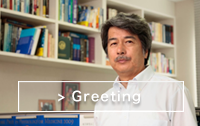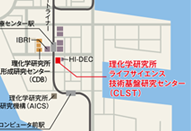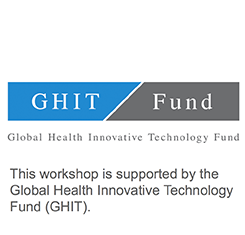Events
[June 6] Workshop on Tools for Malaria Eradication
[DATE]
[HOUR]
[PLACE]
[Introduction]
Malaria is a common disease in large parts of the world with about 214 million cases reported by the WHO for 2015 only. Out of those cases, about 438,000 patients died last year, most of them children under the age of five. With almost half of the world’s population at risk, malaria is a serious problem for global health, and a large burden for the development of many countries, where about 90% of all malaria death occur in Sub-Saharan Africa. The disease develops after the transmission of plasmodium parasites from infected Anopheles mosquitoes (the vector for the disease) to humans as part of a complex life cycle that requires different developmental stages in the mosquito and humans. Large efforts have been undertaken to reduce the global malaria burdens, where between 2000 and 2015 the rate of new cases fell globally by 37%. However, insecticide resistant mosquitoes and antimalarial drug resistant parasites are challenging the success of malaria elimination efforts. In addition, in low-transmission areas only few people develop a partial immunity against malaria increasing the risk of severe cases in all age groups.
[Participation ]
The workshop is open to everyone who wishes to participant.
[Program ]
9:30-9:40
Introduction on malaria and eradication goals
Matthias Harbers, (CFS/RIKEN CLST)
Reducing malaria burdens is one of the key development targets of the WHO as set forward in their Global Technical Strategy for Malaria 2016-2030. However, to reduce malaria cases and malaria mortality rates globally by ~90% by 2030 holds many challenges. Working on a project supported by the Global Health Innovative Technology Fund (GHIT) of Japan for tools to support malaria eradication programs, we want to use this workshop to discuss new tools to effectively monitor malaria cases, and to block the transmission of the parasite to further reduce the case numbers with the final goal to entirely eradicate malaria.
9:40-10:25
Malaria epidemiology and surveillance in endemic populations
Jetsumon S. Prachumsri, (Director of Mahidol Vivax Research Unit (MVRU), Faculty of Tropical Medicine, Mahidol University, Bangkok, Thailand)
In malaria endemic areas, there are populations with and without symptoms after malaria infection, which makes it challenging to properly select a strategy for malaria elimination. Most of asymptomatic population carries the parasite at levels below the detection limit of the tools we have today. How the asymptomatic population contributes to malaria transmission is not well understood. Therefore we have investigated the potential of malaria transmission from asymptomatic patients in Thailand using a direct membrane feeding assay and laboratory reared vectors. Our preliminary data show that about 55% of the blood samples collected from symptomatic patients and > 5% of blood samples collected from asymptomatic patients can contribute to mosquito infection. This finding suggests that more sensitive tools for surveillance are required for implementing a proper strategy for malaria elimination in endemic populations.
10:25-11:10
Diagnostics for malaria and other NTDs
Iveth J. González, (Head of Malaria and Acute Febrile Syndrome programme at FIND, Geneva, Switzerland)
Sustaining global gains and accelerating actions toward disease control and elimination requires better access to appropriate individual diagnosis and effective surveillance and response tools. FIND is committed to increasing access, even in the remotest areas, to high-quality diagnostic tools that have the confidence of health workers and patients. As progress towards elimination is made, country by country, our ability to accurately identify the remaining infections with effective diagnostic tests will be critical for success. Across all FIND’s activities, collaborating with partners is essential. We work with academia, industry, national malaria control programs, other international organizations, implementation agencies and global procurement agencies to increase access to effective diagnosis for diseases related to poverty.
11:10-11:30
Break
11:30-12:15
Diagnostic needs to accelerate malaria elimination
Ivo Mueller, (Joint Division Head, Division for Population Health and Immunity, Walter and Eliza Hall Institute, Melbourne, Australia & Unit Head, Malaria – Parasites and Hosts Unit, Department of Parasites and Insect Vectors, Institut Pasteur, Paris, France )
The re-orientation of malaria control programs from control to elimination requires a shift away from preventing illness and death to interrupting transmission. As transmission drops to low levels, transmissions becomes increasingly heterogeneous and eventually fragments into residual areas of low-to-moderate transmission separate by area will little or no local transmission. In order to eliminate these last foci, programs need be able to be able to efficiently delineate areas according to their residual transmission risk. This requires new surveillance methods and improved diagnostic tests. P. vivax presents a particular diagnostic challenge as it can form dormant liverstages, the hypnzoites, that can reactivate months or even years after the initial, infecting mosquito bite. These dormant liverstages are responsible for 80% of all P. vivax blood-stage infections, and programs thus need to deal with these dormant stages if elimination is to be achieved efficient. Unfortunately, there are currently no easy solutions to the challenge made by these hypnozoites as none of the current diagnostic tests can detect them, and the only drugs that can clear them needs to be taken for 14 days and can cause haemolysis in severely G6PD-deficient people.
12:15-13:00
Approaches to malaria vaccine development
Takafumi Tsuboi, (Division of Malaria Research, Proteo-Science Center, Ehime University, Matsuyama, Japan)
There is a critical need for developing effective malaria vaccines to reduce the burdens for patients and to block further transmission of the disease. However, not even a single licensed malaria vaccine has been developed to date. Furthermore, RTS,S , the world’s most advanced malaria vaccine candidate, shows less than 50% efficacy and protection is short-lived. Therefore we committed to expand the arsenal of promising malaria vaccine candidate antigens to be included into the next generation of subunit malaria vaccine development. We can now comprehensively exploit genomic data from the parasite by at least two post-genomic high-throughput approaches for identification of novel malaria vaccine candidates: 1) immunoscreening of patient sera; and 2) functional testing of antigens. The success of these approaches depends heavily on the synthesis of high quality, recombinant parasite proteins. We previously demonstrated that the wheat germ cell-free protein synthesis system (WGCFS: an eukaryotic system), rather than Escherichia coli (a prokaryotic system), is a highly effective tool for synthesis of quality malaria proteins used for the identification of novel malaria vaccine candidates. This presentation will review our current progress in post-genome malaria vaccine research.
[Speakers (Order of appearance)]
- Matthias Harbers
CFS/RIKEN CLST
Director of Mahidol Vivax Research Unit (MVRU), Faculty of Tropical Medicine, Mahidol University, Bangkok, Thailand
Head of Malaria and Acute Febrile Syndrome programme at FIND, Geneva, Switzerland
Joint Division Head, Division for Population Health and Immunity, Walter and Eliza Hall Institute, Melbourne, Australia & Unit Head, Malaria – Parasites and Hosts Unit, Department of Parasites and Insect Vectors, Institut Pasteur, Paris, France
Division of Malaria Research, Proteo-Science Center, Ehime University, Matsuyama, Japan
[Contact]















